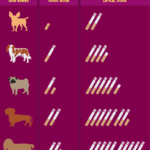Why Is My Dog Trying To Eat Grass
The Curious Case of Dogs Eating Grass: Exploring the Reasons and Risks
Dogs are known for their love of food, but sometimes they eat things that are not meant to be eaten. One common behavior that puzzles many dog owners is when their furry friend starts munching on grass. Why would a carnivorous creature crave a plant-based snack? Is it a sign of illness, boredom, or nutritional deficiency? Should you let your dog eat grass or try to stop them? In this article, we will delve into the topic of why dogs eat grass and provide some insights and tips for concerned pet parents.
What is Grass and Why Do Dogs Eat It?
Grass is a type of plant that belongs to the family Poaceae, which includes various species such as wheat, oats, corn, and bamboo. Grasses are rich in fiber, vitamins, minerals, and chlorophyll, which gives them their green color and helps with photosynthesis. They also contain some protein and carbohydrates, although not in significant amounts compared to animal-based sources. For humans, eating grass can cause indigestion or even poisoning if the plant has been treated with pesticides or herbicides. However, dogs seem to have a different digestive system that allows them to tolerate small amounts of grass without harm.
There are several theories about why dogs eat grass. Some experts believe that it is a natural instinct inherited from their wild ancestors, who would consume plants as part of their diet to aid digestion or obtain nutrients that were lacking in meat. Others suggest that it is a behavioral response to stress or anxiety, similar to how humans may chew gum or bite their nails when nervous. Still others propose that it is simply a form of entertainment or exploration, like when puppies put everything in their mouth to learn about the world around them.
What Are the Reasons Behind Dogs Eating Grass?
While there is no definitive answer to why dogs eat grass, there are some common explanations that may apply to your furry friend. Here are some of the most likely reasons why dogs eat grass:
– To induce vomiting: Some dogs may eat grass as a way to relieve an upset stomach or remove something they ate that is causing discomfort or blockage. Grass can act as a natural emetic, meaning it can trigger the gag reflex and help expel the contents of the stomach. However, not all dogs who eat grass will vomit, and some may actually worsen their condition if they ingest more toxins or irritants.
– To supplement their diet: Although dogs are primarily carnivores, they still have nutritional needs that require plant-based ingredients. Grass can provide fiber, vitamins, and minerals that may be lacking in commercial dog foods or home-cooked meals. If your dog has a balanced diet and access to fresh water, they may not need to eat grass for nutrient supplementation.
– To alleviate boredom or stress: Dogs who are left alone for long periods of time or lack physical and mental stimulation may resort to eating grass as a form of self-soothing or distraction. This behavior can become compulsive or habitual if not addressed with proper exercise, training, and socialization.
– To satisfy their curiosity: Dogs are curious by nature and often explore their environment through sniffing, licking, and chewing. Grass can be intriguing to dogs because of its smell, taste, texture, and movement. Some dogs may develop a preference for certain types of grass or weeds based on their sensory preferences.
– To follow a pack instinct: In multi-dog households or in areas with other dogs nearby, one dog may start eating grass and others may imitate them out of social conformity. This mimicking behavior is common among many animals and humans.
What Are the Risks of Dogs Eating Grass?
While eating grass alone is not necessarily harmful to dogs, there are some risks associated with this behavior that pet owners should be aware of. Here are some of the potential hazards of dogs eating grass:
– Ingesting toxins: Grass can contain various chemicals, pesticides, fertilizers, or other contaminants that pose a health risk to dogs if ingested in large amounts or over time. Some common toxic plants that dogs may mistake for grass include daffodils, lilies, azaleas, and mushrooms.
– Irritating their digestive system: Eating too much grass can irritate your dog’s stomach and intestines, leading to vomiting, diarrhea, bloating, or gas. This can happen if your dog eats grass that is too long, sharp, or dirty. Also, if your dog swallows a large clump of grass without chewing it properly, it may cause an obstruction in their throat or esophagus.
– Transmitting parasites: Grass can harbor various parasites such as fleas, ticks, mites, or worms that can infest your dog’s skin or internal organs. If your dog eats grass that has been contaminated by another animal’s feces or urine, they may contract diseases such as giardiasis or salmonellosis.
How to Deal with Dogs Eating Grass?
If you suspect that your dog is eating grass excessively or for unusual reasons, you should consult your veterinarian for a thorough check-up and diagnosis. Your vet may want to rule out any underlying medical conditions such as gastrointestinal disorders, allergies, infections, or tumors that could be causing your dog’s abnormal behavior.
In general, here are some tips on how to deal with dogs eating grass:
– Provide proper nutrition: Make sure that your dog is getting a balanced diet that meets their age and activity level requirements. You can consult a veterinary nutritionist for personalized advice on what foods to feed and how much.
– Supervise outdoor activities: Keep an eye on your dog when they are outside and prevent them from eating anything suspicious or harmful. You can also create a safe and stimulating environment for your dog by providing toys, puzzles, and activities that they enjoy.
– Train and socialize your dog: Teach your dog basic obedience commands such as “leave it” or “drop it” so that you can redirect them from eating grass or other objects. Also, expose your dog to different environments, people, and dogs so that they can develop confidence and resilience.
– Use deterrents if necessary: If your dog continues to eat grass despite your efforts to discourage them, you can try using bitter sprays or noise makers to deter them from approaching the grassy area. However, be careful not to use anything that could harm your dog’s health or well-being.
Conclusion
In conclusion, dogs eating grass is a common but complex behavior that may have multiple causes and effects. While some dogs may simply enjoy the taste or texture of grass, others may use it as a way to cope with stress, boredom, or digestive issues. As a responsible pet owner, you should observe your dog’s behavior carefully and provide them with proper nutrition, exercise, training, and veterinary care. You can also seek advice from professionals such as veterinarians or animal behaviorists if you have concerns about your dog’s health or behavior. Remember that every dog is unique and deserves individual attention and respect. So next time you see your furry friend munching on grass, don’t be too quick to judge or worry – maybe they are just trying to add some variety to their diet or express their inner cow!



